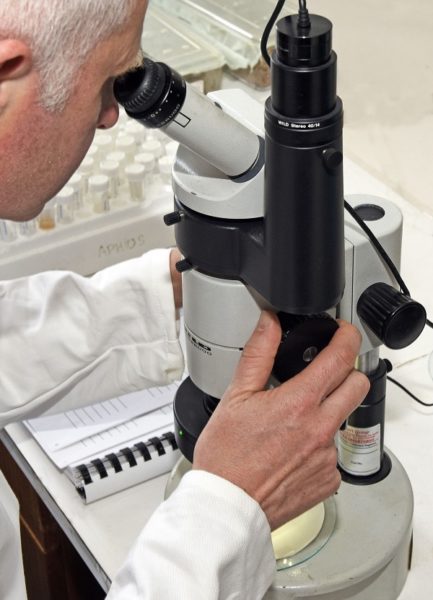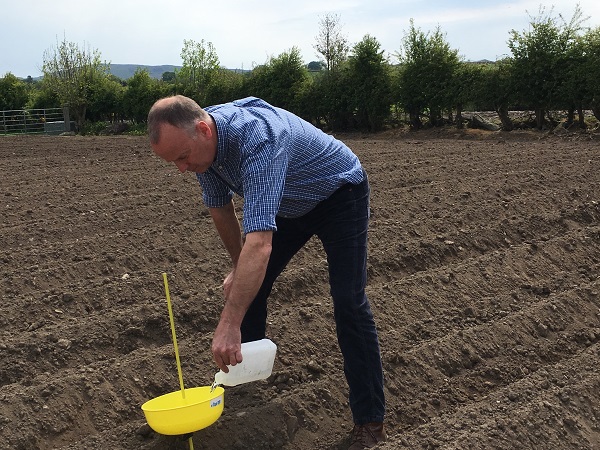One critical factor in the production of high-quality seed potatoes is the prevention of the spread of the virus in the crop. Controlling aphids, one of the main vectors in the spread of the virus, is central to this. However, the ever-increasing scrutiny on the use of insecticides and reduction in the number of products available means that spraying insecticides to reduce aphid numbers needs to be carefully planned and justified rather than relying on a prophylactic approach of spraying just in case.
To help growers minimize the use of insecticides AFBI, Cafre, and Plant Health Inspection Branch have set-up a monitoring programme to identify the numbers of aphids present by weekly field trapping throughout the growing season. The aphids are then counted and identified to determine the level of risk of virus spread into the seed crops. The results from the sampling are then posted on the AFBI website at https://www.afbini.gov.uk/aphid-monitoring so that growers can assess the level of risk and only apply insecticide if necessary to protect the health of the crop. This threshold approach to spraying also helps growers to apply integrated pest management principles thus meeting the requirements of the Sustainable Use Directive and Quality assurance schemes.

Monitoring of aphid numbers in this year’s crop will begin mid-June. If you require any further details visit the website or contact your local Cafre crops development adviser.










